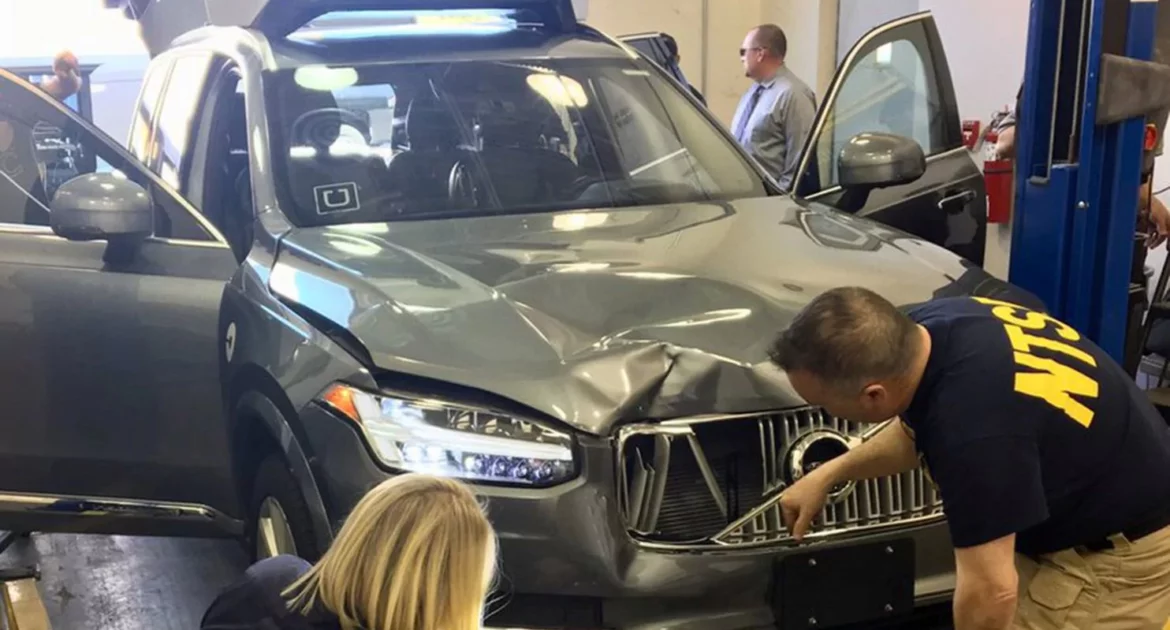
Source : Link
In the days following the deadly accident involving a driverless Uber vehicle in Arizona, some attention has turned to what other car companies are doing with self-driving technology.
Elaine Herzberg, 49, was struck and killed after crossing a street Sunday night, prompting the ride-hailing company to suspend testing of its autonomous vehicles in San Francisco, Phoenix, Pittsburgh and Toronto.
Herzberg is believed to be the first person killed by an autonomous vehicle being tested on a city street.
Tempe police release video of moments before autonomous Uber hit pedestrian
The National Transportation Safety Board has opened an investigation, but other companies are continuing their testing of autonomous vehicles.
In a statement released to the media, Ford — which is currently testing autonomous vehicles in Florida — said safety is the company’s “top priority,” but company officials are taking a wait-and-see approach after the latest incident.
“When more facts and data are available to us, we will make a determination about whether we need to adjust our approach to autonomous vehicle development,” the statement said.
The company is aiming to have a fully autonomous vehicle in operation in 2021.
General Motors is still testing its vehicles.
Waymo and Lyft — two of Uber’s chief rivals in the driverless space — did not immediately respond to requests for comment about the status of their autonomous testing programs.
Waymo, which began as Google’s self-driving car project in 2009, has already begun transporting members of the public around portions of Phoenix in its autonomous taxis. The company, which has a 600-vehicle fleet in Phoenix, recently announced plans to order thousands more Chrysler Pacifica minivans as it expands into other cities.
Lyft has embarked on autonomous testing with multiple automakers, including Ford and General Motors.
Waymo’s self-driving trucks will arrive on Georgia roads next week
Toyota appears to be the only company that has curbed elements of its autonomous vehicle tests in response to Sunday’s fatality. In a statement, company officials said they can’t speculate on the cause of the incident or how it will impact the automated driving industry.
“Because Toyota Research Institute (TRI) feels the incident may have an emotional effect on its test drivers, TRI has decided to temporarily pause its own Chauffeur mode testing on public roads,” the statement said.
Toyota will continue testing its vehicles on tracks and through using Guardian, a driver assist system that is designed to prevent accidents when a human driver is behind the wheel.
While Sunday’s accident has drawn attention to driverless vehicles delivering passengers on city streets, the driverless technology is also making its way into the trucking industry and the nation’s highways. This month Waymo announced that its self-driving trucks would begin making deliveries in Georgia.
But some safety experts, like Brian Fielkow, chief executive of a trucking and logistics company called Jetco Delivery, said Sunday’s accident reveals that autonomous vehicle testing is moving too fast.
“Driverless vehicles have become the bright new shiny object that everyone is excited about,” said Fielkow, who believes some types of autonomous vehicles, such as trucks, should be relegated to designated lanes on roadways. “We can see how this technology is going to change the world, but the problem is that our society and our infrastructure aren’t prepared.”
“For it to be truly integrated,” Fielkow added, “we need at least a decade and maybe more.”
